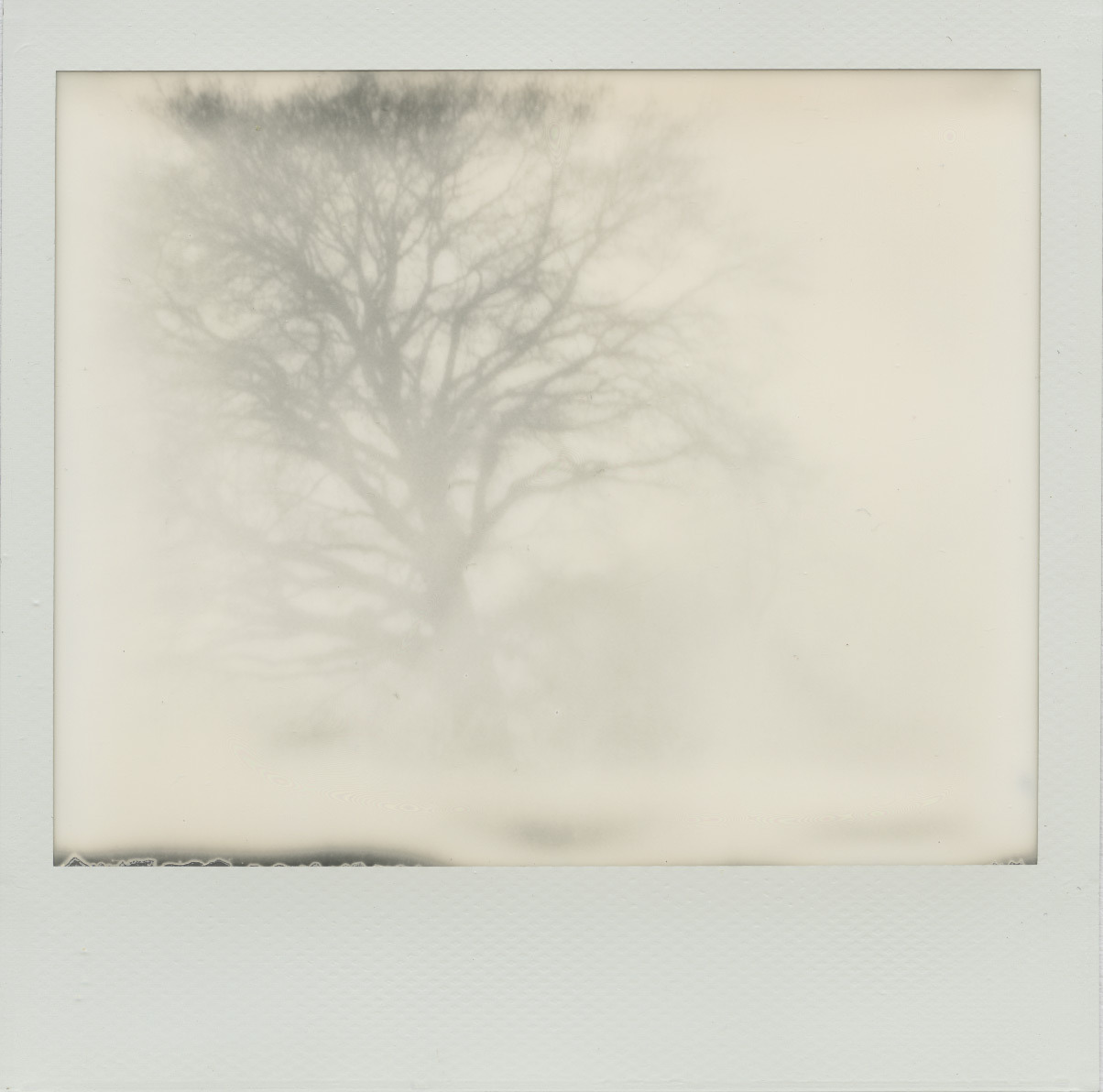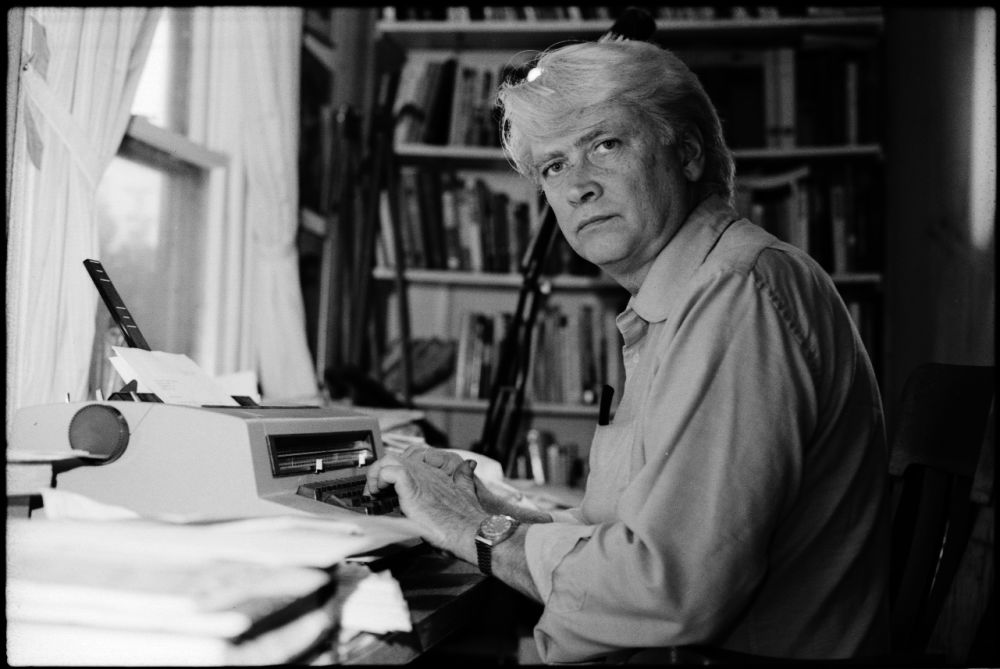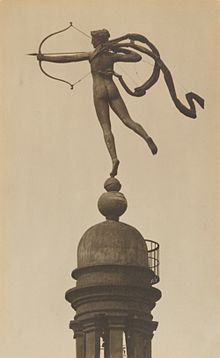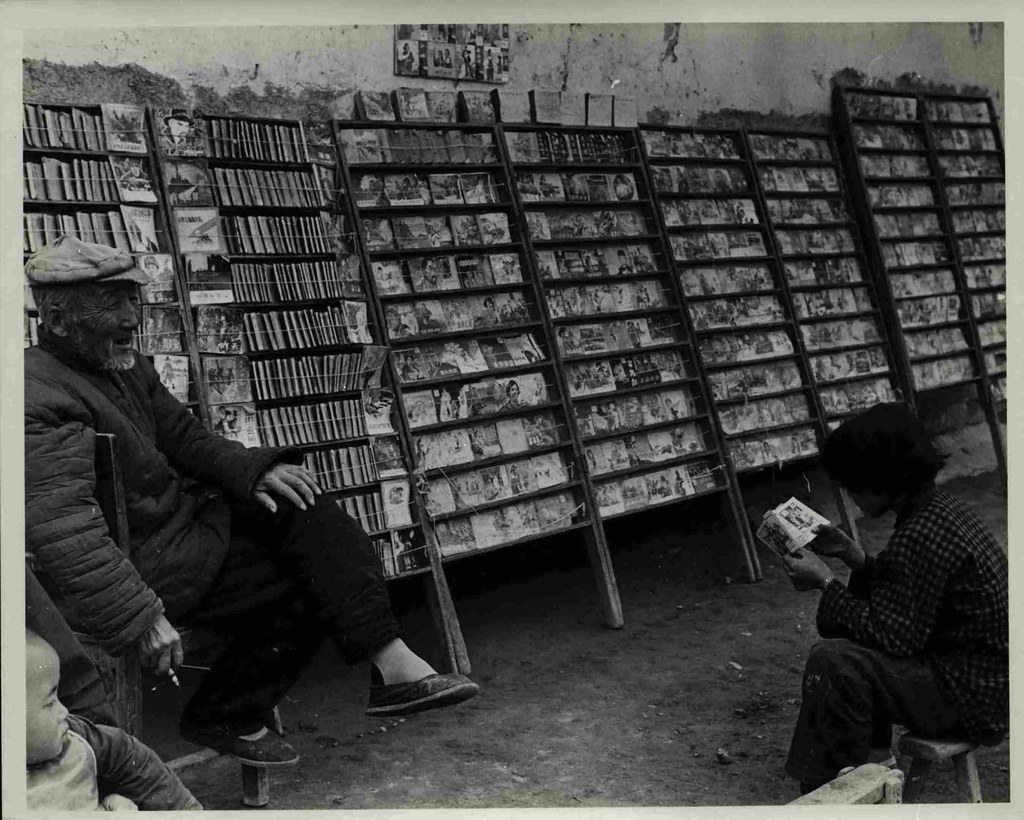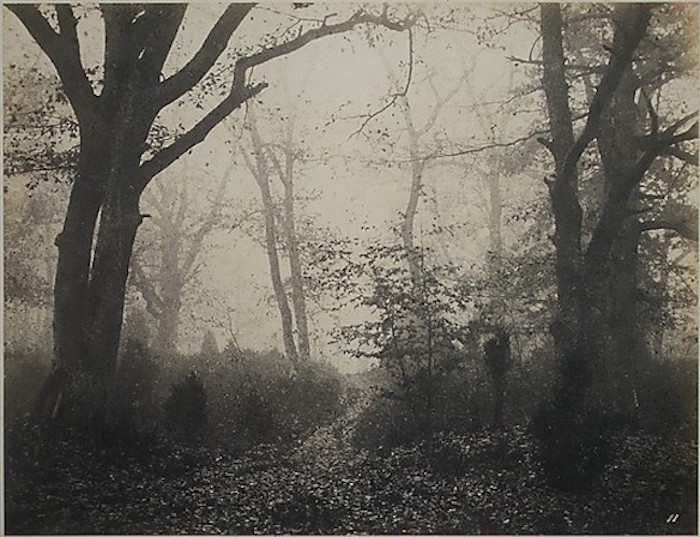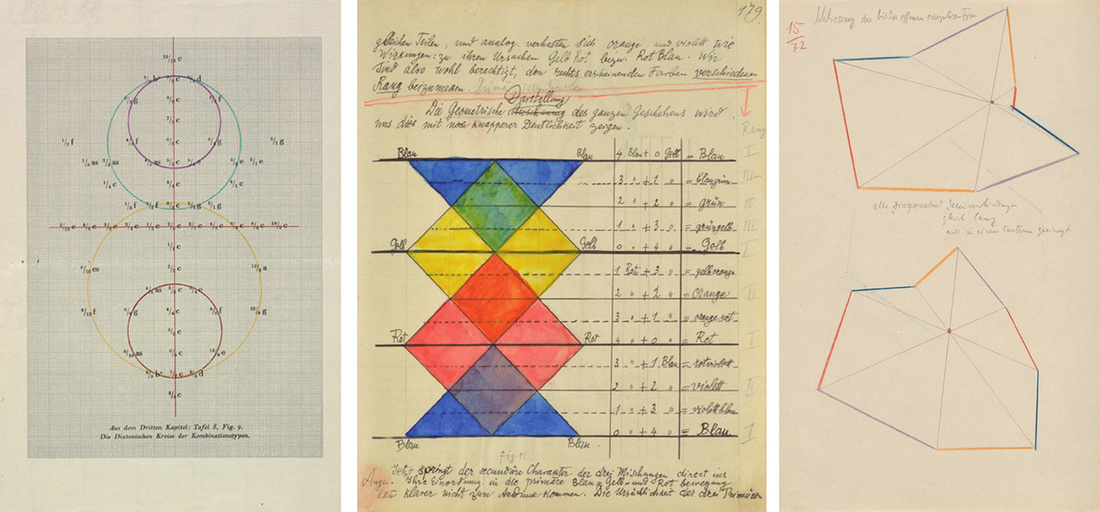31 January 2017
Incuriosity.
INTERVIEWER
You are one of the world’s most famous public intellectuals.
How would you define the term intellectual? Does it still have a particular
meaning?
ECO
If by intellectual you mean somebody who works only with his
head and not with his hands, then the bank clerk is an intellectual and
Michelangelo is not. And today, with a computer, everybody is an intellectual.
So I don’t think it has anything to do with someone’s profession or with
someone’s social class. According to me, an intellectual is anyone who is creatively
producing new knowledge. A peasant who understands that a new kind of graft can
produce a new species of apples has at that moment produced an intellectual
activity. Whereas the professor of philosophy who all his life repeats the same
lecture on Heidegger doesn’t amount to an intellectual. Critical
creativity—criticizing what we are doing or inventing better ways of doing
it—is the only mark of the intellectual function.
INTERVIEWER
Are intellectuals today still committed to the notion of
political duty, as they were in the days of Sartre and Foucault?
ECO
I don’t believe that in order to be politically committed an
intellectual must act as a member of a party or, worse, write exclusively about
contemporary social problems. Intellectuals should be as politically engaged as
any other citizen. At most, an intellectual can use his reputation to support a
given cause. If there is a manifesto on the environmental question, for
instance, my signature might help, so I would use my reputation for a single instance
of common engagement. The problem is that the intellectual is truly useful only
as far as the future is concerned, not the present. If you are in a theater and
there is a fire, a poet must not climb up on a seat and recite a poem. He has
to call the fireman like everyone else. The function of the intellectual is to
say beforehand, Pay attention to that theater because it’s old and dangerous!
So his word can have the prophetic function of an appeal. The intellectual’s
function is to say, We should do that, not, We must do this now!—that’s the
politician’s job. If the utopia of Thomas More were ever realized, I have
little doubt it would be a Stalinist society.
INTERVIEWER
What benefits have knowledge and culture afforded you in
your lifetime?
ECO
An illiterate person who dies, let us say at my age, has
lived one life, whereas I have lived the lives of Napoleon, Caesar, d’Artagnan.
So I always encourage young people to read books, because it’s an ideal way to
develop a great memory and a ravenous multiple personality. And then at the end
of your life you have lived countless lives, which is a fabulous privilege.
INTERVIEWER
But an enormous memory can also be an enormous burden. Like
the memory of Funes, one of your favorite Borges characters, in the story
“Funes the Memorious.”
ECO
I like the notion of stubborn incuriosity. To cultivate a stubborn incuriosity, you have to limit yourself to certain areas of knowledge. You cannot be totally greedy. You have to oblige yourself not to learn everything. Or else you will learn nothing. Culture in this sense is about knowing how to forget. Otherwise, one indeed becomes like Funes, who remembers all the leaves of the tree he saw thirty years ago. Discriminating what you want to learn and remember is critical from a cognitive standpoint.
I like the notion of stubborn incuriosity. To cultivate a stubborn incuriosity, you have to limit yourself to certain areas of knowledge. You cannot be totally greedy. You have to oblige yourself not to learn everything. Or else you will learn nothing. Culture in this sense is about knowing how to forget. Otherwise, one indeed becomes like Funes, who remembers all the leaves of the tree he saw thirty years ago. Discriminating what you want to learn and remember is critical from a cognitive standpoint.
Beethoven, Piano Trio in D major, Op. 70, No. 1, "Ghost"
This performance features Daniel Barenboim and his red jacket, piano, Pinchas Zukerman, violin, and Jacqueline du Pré, cello ...
Happy birthday, Merton.
Thomas Merton was born on this day in 1915.
Do not depend on the hope of results. You may have to face
the fact that your work will be apparently worthless and even achieve no result
at all, if not perhaps results opposite to what you expect. As you get used to
this idea, you start more and more to concentrate not on the results, but on
the value, the rightness, the truth of the work itself. You gradually struggle
less and less for an idea and more and more for specific people. In the end, it
is the reality of personal relationship that saves everything.
Thomas Merton
30 January 2017
29 January 2017
Wanderers.
We wanderers, ever seeking the lonelier way, begin no day
where we have ended another day; and no sunrise finds us where sunset left us.
Even while the earth sleeps we travel. We are the seeds of the tenacious plant,
and it is in our ripeness and our fullness of heart that we are given to the
wind and are scattered.
Kahlil Gibran
Vivaldi, Flute Concerto in G minor, RV 439, "La Notte"
Ensemble Imaginarium performs under the direction of Enrico Onofri, featuring Marco Brolli, traverse flute ...
Steam.
From John Garner, "The Art of Fiction," No. 73 ...
INTERVIEWER
INTERVIEWER
Do you feel that literary techniques can really be taught?
Some people feel that technique is an artifice or even a hindrance to “true
expression.”
GARDNER
Certainly it can be taught. But a teacher has to know technique
to teach it. I've seen a lot of writing teachers because I go around visiting
colleges, visiting creative writing classes. A terrible number of awful ones,
grotesquely bad. That doesn't mean that one should throw writing out of the
curriculum; because when you get a good creative writing class it's
magisterial. Most of the writers I know in the world don't know how they do
what they do. Most of them feel it out. Bernard Malamud and I had a
conversation one time in which he said that he doesn't know how he does those
magnificent things he sometimes does. He just keeps writing until it comes out
right. If that's the way a writer works, then that's the way he had to work,
and that's fine. But I like to be in control as much of the time as possible. One
of the first things you have to understand when you are writing fiction—or
teaching writing—is that there are different ways of doing things, and each one
has a slightly different effect. A misunderstanding of this leads you to the
Bill Gass position: that fiction can't tell the truth, because every way you
say the thing changes it. I don't think that's to the point. I think that what
fiction does is sneak up on the truth by telling it six different ways and
finally releasing it. That's what Dante said, that you can't really get at the
poetic, inexpressible truths, that the way things are leaps up like steam
between them. So you have to determine very accurately the potential of a
particular writer's style and help that potential develop at the same time, ignoring
what you think of his moral stands.
I hate nihilistic, cynical writing. I hate it. It bothers
me, and worse yet, bores me. But if I have a student who writes with morbid
delight about murder, what I'll have to do (though of course I'll tell him I don't
like this kind of writing, that it's immoral, stupid, and bad for
civilization), is say what is successful about the work and what is not. I have
to swallow every bit of my moral feelings to help the writer write his way, his
truth. It may be that the most moral writing of all is writing that shows us
how a murderer feels, how it happens. It may be it will protect us from
murderers someday.
Pathways.
We should not force ourselves to change by hammering our
lives into any predetermined shape. We do not need to operate according to the
idea of a predetermined program or plan for our lives. Rather, we need
to practice a new art of attention to our inner rhythm of our days
and lives. This attention brings a new awareness of our own human and divine
presence. A dramatic example of this kind of transfiguration is the one all
parents know. You watch your children carefully, but one day they surprise you;
you still recognize them, but your knowledge of them is insufficient.
You have to start listening to them all over again.
It is far more creative to work with the idea of mindfulness
rather than with the idea of will. Too often people try to change their lives
by using the will as a kind of hammer to beat their life into proper shape. The
intellect identifies the goal of the program, and the will accordingly forces
the life into that shape. This way of approaching the sacredness of one’s own
presence is externalistic and violent. It brings you falsely outside your own
self and you can spend years lost in the wilderness of your own mechanical,
spiritual programs. You can perish in a famine of your own making.
If you work with a different rhythm, you will come easily
and naturally home to your self. Your soul knows the geography of your destiny.
Your soul alone has a map of your future, therefore you can trust this
indirect, oblique side of your self. If you do, it will take you where you need
to go, but more importantly it will teach you a kindness of rhythm in your
journey. There are no general principles for this art of being. Yet the
signature of this unique journey is inscribed deeply in each soul. If you
attend to your self and seek to come into your own presence, you will find
exactly the right rhythm for your life. The senses are generous pathways which
can bring you home.
John O’Donohue
Kings.
Eisenstaedt, Children at a Puppet Show, Paris, 1963
In a world where nearly everything that passes for art is
tinny and commercial and often, in addition, hollow and academic, I argue -- by
reason and by banging the table -- for an old-fashioned view of what art is and
does and what the fundamental business of critics ought therefore to be. Not
that I want joy taken out of the arts; but even frothy entertainment is not
harmed by a touch of moral responsibility, at least an evasion of too
fashionable simplifications.
We need to stop excusing mediocre and downright pernicious
art, stop "taking it for what it’s worth" as we take our fast foods, our
overpriced cars that are no good, the overpriced houses we spend all our lives
fixing, our television programs, our schools thrown up like barricades in the
way of young minds, our brainless fat religions, our poisonous air, our
incredible cult of sports, and our ritual of fornicating with all pretty or
even horse-faced strangers. We would not put up with a debauched king, but in a
democracy all of us are kings, and we praise debauchery as pluralism.
John C. Gardner
28 January 2017
Resilience.
In the mid-1800s, a railroad director, entrepreneur, and
politician named Lewis Henry Morgan began visiting a largely undeveloped swath
of land dotted with beaver ponds in Michigan’s Upper Peninsula. What he saw
amazed him: “[A] beaver district, more remarkable, perhaps, than any other of
equal extent to be found in any part of North America,” he wrote. “A rare
opportunity was thus offered to examine the works of the beaver, and to see him
in his native wilds.”
Morgan wasn’t your typical nature buff. His pioneering
anthropological studies of Native American tribes had already begun to
make him an enormously influential figure in 19th century science. In 1880, he
would be elected president of AAAS (publisher of Science), and
Charles Darwin, Sigmund Freud, and Karl Marx would come to cite his work. But
as Morgan helped his railroad company lay tracks across the Michigan wilderness
in the 1850s and 1860s, the target of his scientific curiosity was the North
American beaver (Castor canadensis).
For years, he carefully documented how the beavers behaved
and where they built their dams and ponds. Then, in 1868, Morgan published his
396-page beaver bible: The American Beaver and His Works. Folded into each
copy was a map, carefully drawn by his railroad’s engineers, which detailed the
locations of 64 beaver dams and ponds spread over some 125 square kilometers
near the community of Ishpeming.
Now, that rare map is giving researchers some new insight
into just how busy beavers can be. A new survey shows that many of the dams and
ponds that Morgan saw nearly 150 years ago are still there—testament to the
resilience of the rodents and their ability to maintain structures over many
generations.
CONNECT
Feels.
BACCHANALIA
I
The evening comes, the fields are still.
The tinkle of the thirsty rill,
Unheard all day, ascends again;
Deserted is the half-mown plain,
Silent the swaths! the ringing wain,
The mower's cry, the dog's alarms,
All housed within the sleeping farms!
The business of the day is done,
The last-left haymaker is gone.
And from the thyme upon the height,
And from the elder-blossom white
And pale dog-roses in the hedge,
And from the mint-plant in the sedge,
In puffs of balm the night-air blows
The perfume which the day forgoes.
And on the pure horizon far,
See, pulsing with the first-born star,
The liquid sky above the hill!
The evening comes, the fields are still.
Loitering and leaping,
With saunter, with
bounds—
Flickering and circling
In files and in rounds—
Gaily their pine-staff
green
Tossing in air,
Loose o'er their
shoulders white
Showering their hair—
See! the wild Maenads
Break from the wood,
Youth and Iacchus
Maddening their blood.
See! through the quiet
land
Rioting they pass—
Fling the fresh heaps
about,
Trample the grass.
Tear from the rifled
hedge
Garlands, their prize;
Fill with their sports
the field,
Fill with their cries.
Shepherd, what ails
thee, then?
Shepherd, why mute?
Forth with thy joyous
song!
Forth with thy flute!
Tempts not the revel
blithe?
Lure not their cries?
Glow not their
shoulders smooth?
Melt not their eyes?
Is not, on cheeks like
those,
Lovely the flush?
—Ah, so the quiet
was!
So was the hush!
II
The epoch ends, the world is still.
The age has talk'd and work'd its fill—
The famous orators have shone,
The famous poets sung and gone,
The famous men of war have fought,
The famous speculators thought,
The famous players, sculptors, wrought,
The famous painters fill'd their wall,
The famous critics judged it all.
The combatants are parted now—
Uphung the spear, unbent the bow,
The puissant crown'd, the weak laid low.
And in the after-silence sweet,
Now strifes are hush'd, our ears doth meet,
Ascending pure, the bell-like fame
Of this or that down-trodden name,
Delicate spirits, push'd away
In the hot press of the noon-day.
And o'er the plain, where the dead age
Did its now silent warfare wage—
O'er that wide plain, now wrapt in gloom,
Where many a splendour finds its tomb,
Many spent fames and fallen mights—
The one or two immortal lights
Rise slowly up into the sky
To shine there everlastingly,
Like stars over the bounding hill.
The epoch ends, the world is still.
Thundering and bursting
In torrents, in waves—
Carolling and shouting
Over tombs, amid
graves—
See! on the cumber'd
plain
Clearing a stage,
Scattering the past
about,
Comes the new age.
Bards make new poems,
Thinkers new schools,
Statesmen new systems,
Critics new rules.
All things begin again;
Life is their prize;
Earth with their deeds
they fill,
Fill with their cries.
Poet, what ails thee,
then?
Say, why so mute?
Forth with thy praising
voice!
Forth with thy flute!
Loiterer! why sittest
thou
Sunk in thy dream?
Tempts not the bright
new age?
Shines not its stream?
Look, ah, what genius,
Art, science, wit!
Soldiers like Caesar,
Statesmen like Pitt!
Sculptors like Phidias,
Raphaels in shoals,
Poets like Shakespeare—
Beautiful souls!
See, on their glowing
cheeks
Heavenly the flush!
—Ah, so the
silence was!
So was the hush!
The world but feels the present's spell,
The poet feels the past as well;
Whatever men have done, might do,
Whatever thought, might think it too.
Teaches.
Chef Marco Pierre White on teaches about persistence, simplicity, and remembering origins ...
27 January 2017
Died.
A wonderful thing happens when you give up on hope, which is
that you realize you never needed it in the first place. You realize that
giving up on hope didn’t kill you. It didn’t even make you less effective. In
fact it made you more effective, because you ceased relying on someone or
something else to solve your problems — you ceased hoping your
problems would somehow get solved through the magical assistance of God, the
Great Mother, the Sierra Club, valiant tree-sitters, brave salmon, or even the
Earth itself — and you just began doing whatever it takes to solve those
problems yourself.
When you give up on hope, something even better happens than
it not killing you, which is that in some sense it does kill you. You die. And
there’s a wonderful thing about being dead, which is that they — those in power
— cannot really touch you anymore. Not through promises, not through threats,
not through violence itself. Once you’re dead in this way, you can still sing,
you can still dance, you can still make love, you can still fight like hell —
you can still live because you are still alive, more alive in fact than ever
before. You come to realize that when hope died, the you who died with the hope
was not you, but was the you who depended on those who exploit you, the you who
believed that those who exploit you will somehow stop on their own, the you who
believed in the mythologies propagated by those who exploit you in order to
facilitate that exploitation. The socially constructed you died. The civilized
you died. The manufactured, fabricated, stamped, molded you died. The victim died.
Derrick Jensen
Doors.
Those for whom culture has been a long-term emotional
investment feel they know what true culture is, and know that it is a thing of
supreme value. But when we try to define it we end up like the poet Matthew
Arnold who, in a celebrated essay, Culture and Anarchy, published in 1865,
wrote of culture as “the best that has been thought and said.” To which the
obvious response is: in what respect and in comparison with what? And what’s
wrong with second best?
We cannot lay down a law for popular taste or forbid people
to enjoy what appeals to them – not unless we can find some serious moral
argument that would justify censorship. But there are certain general
principles that everyone can assent to. For example, we all recognise the
difference between means and ends. We know that we choose the means to our
ends, but also that we choose our ends. We are active guardians of our own
lives, aiming not just to hit the target that we have chosen, but also to
choose the right target. How do we learn to do that? The answer is culture –
both the culture of everyday life and the “high” culture, as it is sometimes
called, in which life becomes fully conscious of itself as an object of
judgment. The arts form the core of high culture: it is why we teach them, and
why we encourage people to take an interest in them. They are doors into the
examined life and, as Socrates famously said, “the unexamined life is not a
life for a human being.”
Roger Scruton
Roger Scruton
Must.
There may be times when we are powerless to prevent
injustice, but there must never be a time when we fail to protest. We must take sides. Neutrality helps
the oppressor, never the victim. Silence encourages the tormentor, never the
tormented. Sometimes we must interfere. When human lives are endangered, when
human dignity is in jeopardy, national borders and sensitivities become
irrelevant. Wherever men and women are persecuted because of their race,
religion, or political views, that place must - at that moment - become the
center of the universe.
Elie Wiesel
Happy birthday, Mozart.
Lange, Mozart, 1782
Johannes Chrysostomus Wolfgangus Theophilus Mozart was born on this day in 1756.
Whoever is most impertinent has the best chance.
Wolfgang Amadeus Mozart
Whoever is most impertinent has the best chance.
Wolfgang Amadeus Mozart
Sir Colin Davis leads the Bayerischen Rundfunks Symphony Orchestra in the Serenade No. 10 in B-flat major, K.361/370a, "Gran Partita" ...
25 January 2017
24 January 2017
23 January 2017
Happy birthday, Manet.
Manet, A Bouquet of Flowers, 1889
Edouard Manet was born on this day in 1832.
It is not enough to know your craft – you have to have feeling. Science is all very well, but for us imagination is worth far more.
Edouard Manet
Manet: The Man Who Invented Modern Art, a documentary by Waldemar Januszczak ...
22 January 2017
21 January 2017
Safeguard.
Why does the state take an interest in education? The prevailing view, at least since the end of the last war, has been that the state takes an interest in education because it is the right of every child to receive it. Hence the state becomes the universal provider, and as such must treat all its dependents equally, and make no special favours on grounds of wealth, talent or social status.
From this, by a kind of creeping egalitarianism, we edge towards the conclusion that the state must make no distinctions, that children should not be sorted by their abilities and aptitudes, and that even exams should be downgraded or at least not made to look as though they were the final goal. When it comes to schooling, the educationists add, we, the experts, are bound to be better informed than the parents, who should feel no qualms in surrendering their children to the beneficent care of a state that acts always on our wise advice.
The assumption has been, in other words, that education exists for the sake of the child. In my view the state takes an interest in education only because it has another and more urgent interest in something else — namely knowledge. Knowledge is a benefit to everyone, including those who do not and cannot acquire it. How many of our citizens could build a nuclear power station, judge a case in Chancery, read a grant of land in mediaeval Latin, conduct a Mozart concerto, solve an equation in aerodynamics, repair a railway engine? We don’t need to have the knowledge ourselves, provided there are others, the experts, who possess it. And the more we outsource our memory and information to our iPhones and laptops, the more those experts are needed. If that is so, then the state must ensure that education, however available and however distributed, will reproduce our store of knowledge, and if possible add to it.
There may come a time when children and their teachers cease to hear about the Dark Ages. People may then no longer understand that knowledge can be lost as well as gained, as our store of knowledge was lost for 400 years, before being slowly and painfully recuperated. Here, it seems to me, is where the educationists have misled us. The state, they have told us, has a duty towards each child, and no child must be made to feel inferior to any other. Although that is true, the state has another and greater duty which is a duty towards us all — namely, the duty to conserve the knowledge that we need, which can be passed on only with the help of the children able to acquire it.
To put the matter simply, knowledge benefits the child, but not as much as the clever child benefits knowledge. Hence the state has an interest in selection, so that those with an aptitude for knowledge can be given the chance to acquire it — to acquire it without the many distractions that come from being surrounded by others who have no interest in the life of the mind.
I was fortunate to attend a grammar school, which made available to me the kind of knowledge that people of my parents’ class did not easily have the chance to acquire. Hence I have played my own special part in absorbing, processing and passing on the knowledge that is still enshrined in our curriculum. I take this as a justification for my existence, that I have passed on to others something that, but for the kind of education I enjoyed, might have died.
Critics tell us that selection divides children into successes and failures, and that the failures are ‘marked for life’. I see no reason to believe that. Future generations need knowledge; but they also need skills, strengths and technical know-how. Schools that provide those benefits — like the German Technische Hochschulen — are as important as grammar schools: and if children have the possibility of freely passing between schools in the process of discovering their aptitude, then selection need in any case never be final.
In the world of education those thoughts are heresies. After years of ‘child-centred’ indoctrination the educational establishment has become lost in a kind of fairyland, believing that education is really a form of social engineering, and that its primary purpose is to boost the pupil’s ‘self-esteem’. Once we see that the primary purpose of education is to safeguard knowledge, all the fairy castles of the educationists tumble in ruins. Hence they are up in arms, and, as so often, in arms against the truth.
Roger Scruton
20 January 2017
Gordon Lightfoot, "Early Morning Rain"
I'm a long way from home
Lord, I miss my loved ones so
In the early morning rain
With no place to go
19 January 2017
Leads.
Some people, I am told, have memories like computers,
nothing to do but punch the button and wait for the print-out. Mine is more
like a Japanese library of the old style, without a card file or an indexing
system or any systematic shelf plan. Nobody knows where anything is except the
old geezer in felt slippers who has been shuffling up and down those stacks for
sixty-nine years. When you hand him a problem he doesn't come back with a
cartful and dump it before you, a jackpot of instant retrieval. He finds one
thing, which reminds him of another, which leads him off to the annex, which
directs him to the east wing, which sends him back two tiers from where he
started. Bit by bit he finds you what you want, but like his boss who seems to
be under pressure to examine his life, he takes his time.
Wallace Stegner
Better.
van Gogh, The Mulberry Tree, 1889
Surely a canvas I've covered is worth more than a blank one.
This, dear Lord is all I have -- my right to paint, my reason for painting --
and believe me, my pretensions go no further.
And after all it has cost me: this dilapidated carcass and a brain addled from living as best I can and have had to because of my own philanthropy.
My concentration is becoming more intense, my touch more certain. So I can almost dare to promise you that my paintings will get better. Because that is all I have left.
And after all it has cost me: this dilapidated carcass and a brain addled from living as best I can and have had to because of my own philanthropy.
My concentration is becoming more intense, my touch more certain. So I can almost dare to promise you that my paintings will get better. Because that is all I have left.
Vincent Van Gogh
18 January 2017
Making.
Witkiewicz, Jesieniowiska, 1894
The best teachers have showed me that things have to be done
bit by bit. Nothing that means anything happens quickly--we only think it does.
The motion of drawing back a bow and sending an arrow straight into a target
takes only a split second, but it is a skill many years in the making. So it is
with a life, anyone's life. I may list things that might be described as my
accomplishments in these few pages, but they are only shadows of the larger
truth, fragments separated from the whole cycle of becoming. And if I can tell
an old-time story now about a man who is walking about, a forest lodge man, it
is because I spent many years walking about myself, listening to voices that
came not just from the people but from animals and trees and stones.
Joseph Brochak
17 January 2017
Dvořák, Symphony No. 9 in E Minor, "New World"
The Largo performed by the Vienna Philharmonic, directed by Herbert von Karajan ...
This.
You may have noticed that the books you really love are bound together by a secret thread. You know very well what is the common quality that makes you love them, though you cannot put it into words: but most of your friends do not see it at all, and often wonder why, liking this, you should also like that. Again, you have stood before some landscape, which seems to embody what you have been looking for all your life; and then turned to the friend at your side who appears to be seeing what you saw — but at the first words a gulf yawns between you, and you realize that this landscape means something totally different to him, that he is pursuing an alien vision and cares nothing for the ineffable suggestion by which you are transported. Even in your hobbies, has there not always been some secret attraction which the others are curiously ignorant of — something, not to be identified with, but always on the verge of breaking through, the smell of cut wood in the workshop or the clap-clap of water against the boat’s side? Are not all lifelong friendships born at the moment when at last you meet another human being who has some inkling (but faint and uncertain even in the best) of that something which you were born desiring, and which, beneath the flux of other desires and in all the momentary silences between the louder passions, night and day, year by year, from childhood to old age, you are looking for, watching for, listening for? You have never had it. All the things that have ever deeply possessed your soul have been but hints of it — tantalizing glimpses, promises never quite fulfilled, echoes that died away just as they caught your ear. But if it should really become manifest — if there ever came an echo that did not die away but swelled into the sound itself — you would know it. Beyond all possibility of doubt you would say,“Here at last is the thing I was made for." We cannot tell each other about it. It is the secret signature of each soul, the incommunicable and unappeasable want, the thing we desired before we met our wives or made our friends or chose our work, and which we shall still desire on our deathbeds, when the mind no longer knows wife or friend or work. While we are, this is. If we lose this, we lose all.
C.S. Lewis
Revealed.
Roger Scruton
A section of Scruton's talk, "The View from Nowhere," which was part of the Gifford Lectures' The Face of God ...
16 January 2017
Poetry.
Cuvelier, Fountainebleau Forest, 1869
How I used to love the dark, sad evenings of late autumn and winter, how eagerly I imbibed their moods of loneliness and melancholy when wrapped in my cloak I strode for half the night through rain and storm, through the leafless winter landscape, lonely enough then too, but full of deep joy, and full of poetry.
How I used to love the dark, sad evenings of late autumn and winter, how eagerly I imbibed their moods of loneliness and melancholy when wrapped in my cloak I strode for half the night through rain and storm, through the leafless winter landscape, lonely enough then too, but full of deep joy, and full of poetry.
Herman Hesse
Himself.
Jean Piaget
Lessons.
CONNECT
Own.
Human freedom is finite freedom. Man is not free from
conditions. But he is free to take a stand in regard to them. The conditions do
not completely condition him. Although our existence is influenced by
instincts, inherited disposition and environment, an area of freedom is always
available to us. Everything can be taken from a man, but the last of the human
freedoms is to choose one’s attitude in any a given set of circumstances, to
choose one’s own way.
Dr. Viktor Frankel
Dr. Viktor Frankel


